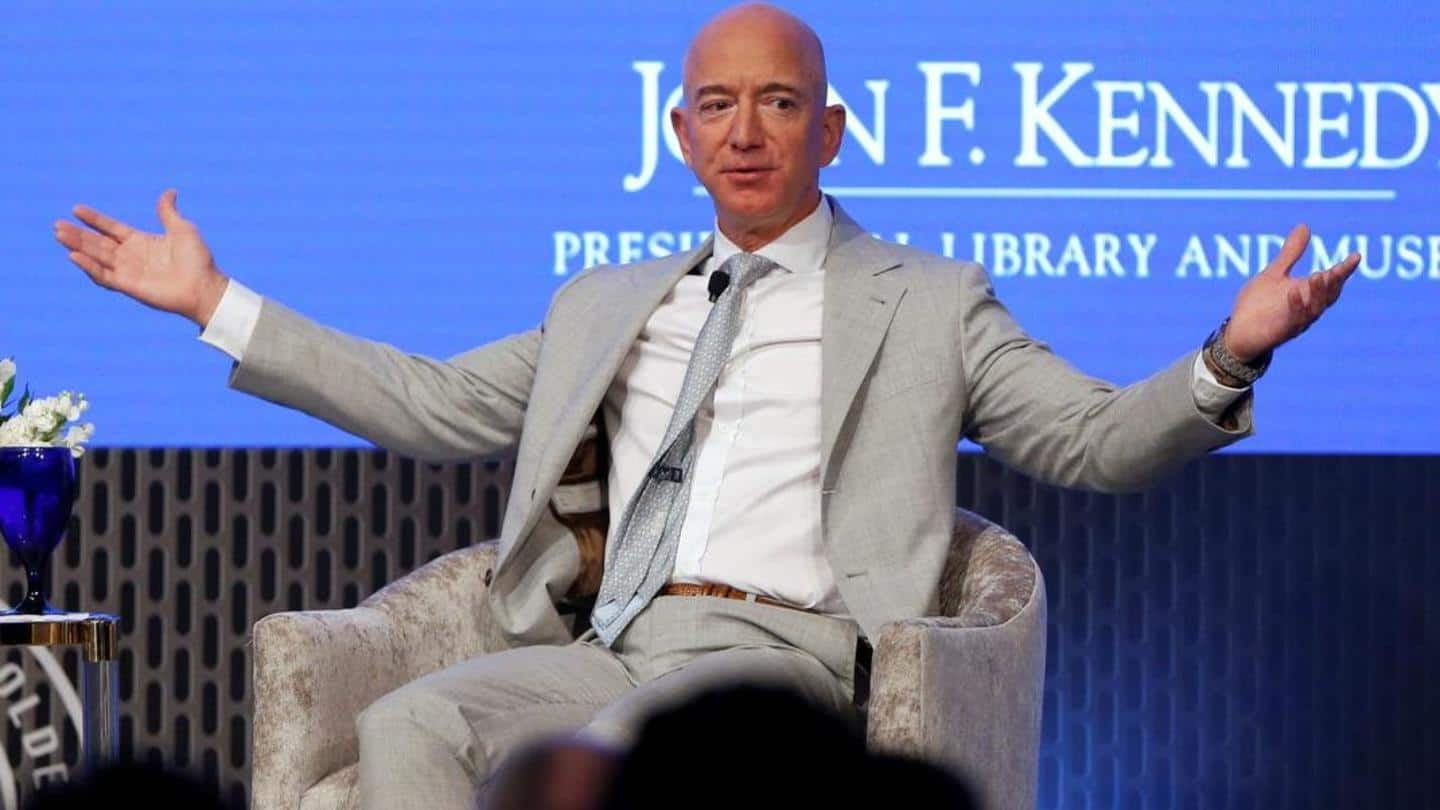
Kuiper constellation: Amazon gets approval to provide internet from space
What's the story
After e-commerce, web services, entertainment, Amazon is set to take on Elon Musk's SpaceX in the booming "internet-from-space" category. The Jeff Bezos-led giant on Thursday received the Federal Communications Commission's go-ahead to build, deploy, and operate its ambitious Kuiper constellation - a massive satellite network aimed at providing broadband services to the US and other parts of the world. Here's all about it.
Project
Project to create a constellation of over 3,000 satellites
First announced last year, Kuiper is Amazon's long-term initiative to establish a constellation of 3,236 satellites in orbit and use them to beam high-speed, low-latency, and affordable internet down to households, schools, hospitals, businesses on Earth. The project is still at a nascent stage but Amazon says it is committed to building the constellation and will invest $10 billion to make it a reality.
Quote
Kuiper will help people come online
Dave Limp, Amazon's Senior VP, said, "There are people who are unable to do their job or complete schoolwork because they don't have reliable internet...There are still too many places where broadband access is unreliable or where it doesn't exist. Kuiper will change that."
Approval
FCC wants to see half of constellation ready by 2026
While Kuiper will give Amazon the ability to deliver internet to unserved, underserved communities globally, the FCC's nod is only to deploy and operate the constellation to provide broadband in the US. It paves the way for Amazon to start launching satellites (whenever ready) but has mandated the company to have half of the constellation running by 2026 and the other half by 2029.
Work
How Amazon plans to complete this mission?
According to Amazon's FCC filing, the company will send the satellites to three different altitudes in the low-Earth orbit to establish the broadband system, but to begin services, it just needs 578 probes in place. The $10 billion investment will be utilized to build Amazon's ground network, accelerate the manufacturing, testing of the satellites, and ultimately deliver an affordable customer terminal providing fast internet.
Design
Design of satellite network is yet to be finalized
As of now, the design of the satellite network has not been finalized. Amazon has been asked by FCC to present a final plan explaining how it will operate the network without adding orbital debris, which is already way too much. Notably, Amazon had suggested that it will take the satellites out of orbit within 355 days but FCC needs more information around it.
Competition
Amazon will be going directly against SpaceX
With this constellation, Amazon will be going directly against Elon Musk's SpaceX, which has already started creating its 'Starlink' space internet system with over 500 satellites in place. The space-faring company plans to launch nearly 12,000 broadband satellites in the coming years. Similarly, UK-based OneWeb is also in the race with plans to have a network of 650 satellites.